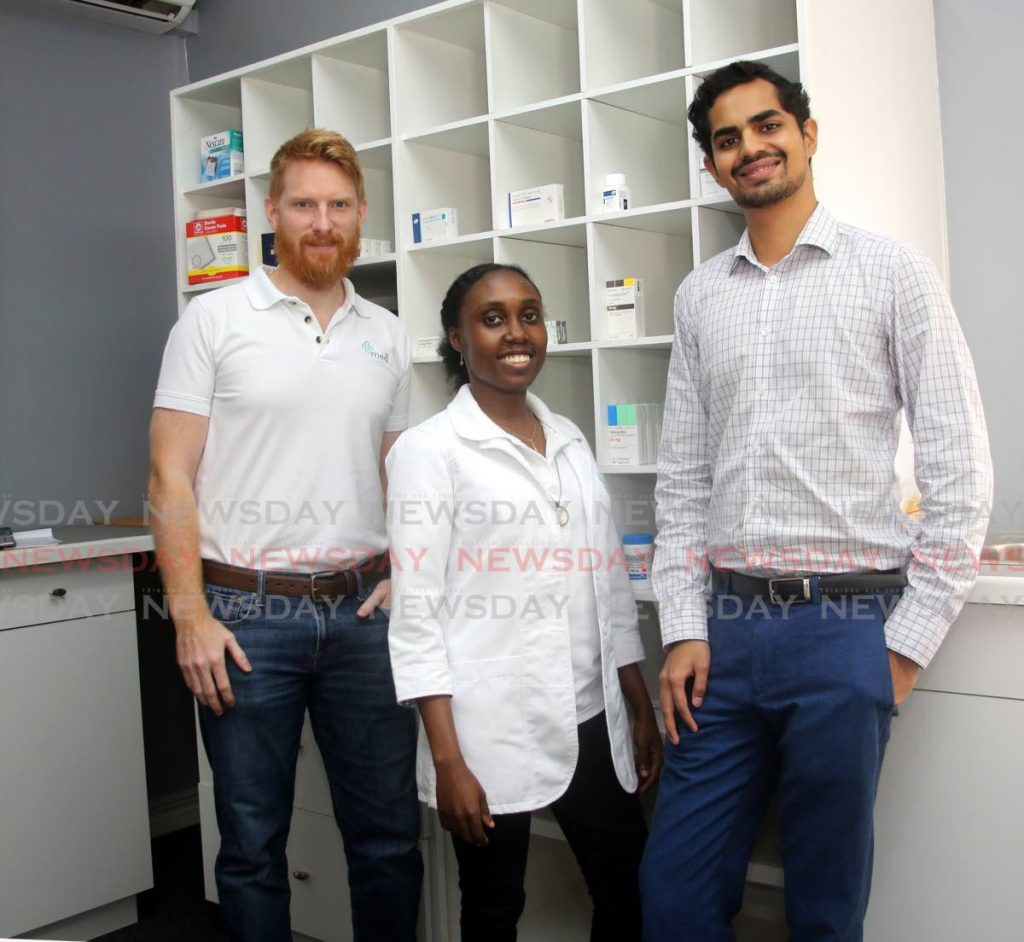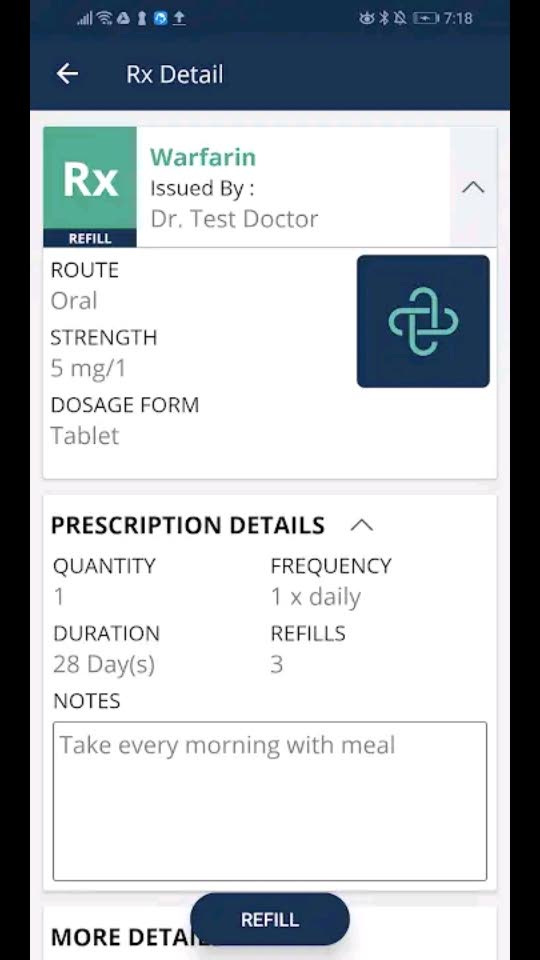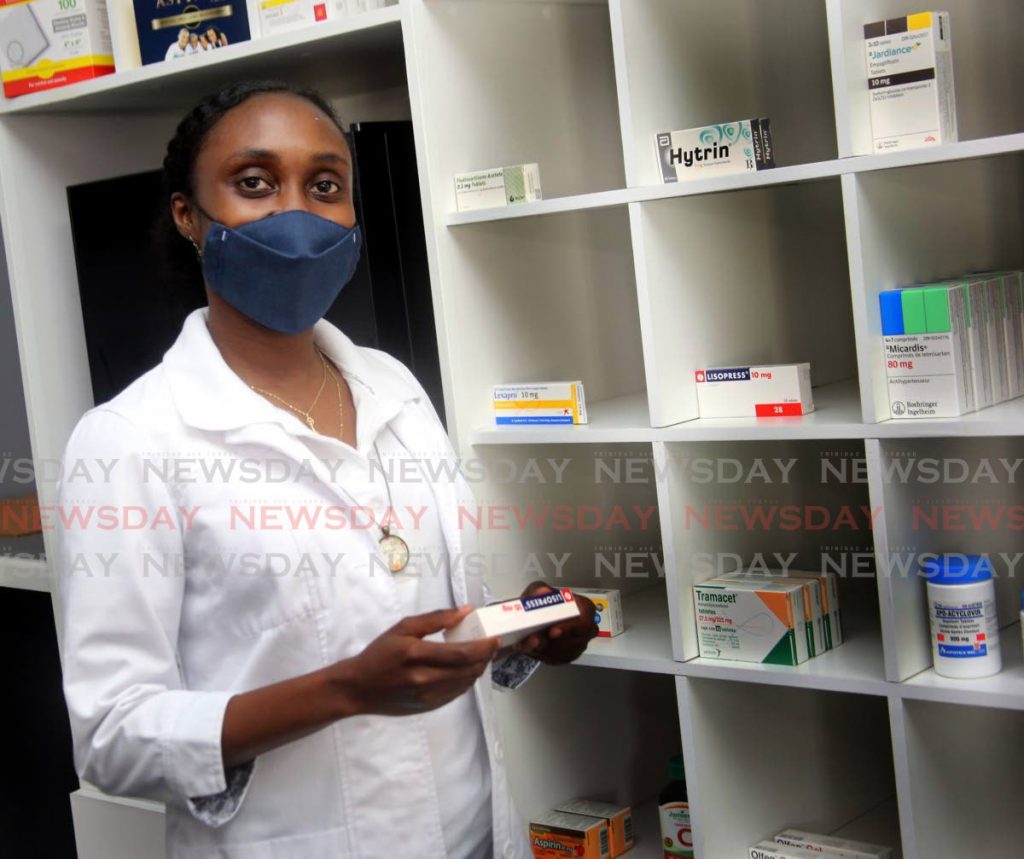Online pharmacy app medl fills prescription gap for NCDs

IN THIS day and age, no one should die of a non-communicable disease. Yet in Trinidad and Tobago, NCDs are one of the leading causes of death – even higher than crime.
In 2016, World Health Organization statistics said NCDs such as diabetes, cardiovascular diseases and other lifestyle illnesses accounted for 83 per cent of the nation’s deaths. In light of these facts, one would think that people with chronic diseases in Trinidad and Tobago – and in the world at large – would have the best access to medication prescribed by their doctors to combat their ailments.
That assumption would be wrong.
Patient adherence to prescribed medications, according to US Pharmacist Magazine, is at about 50 per cent. That means there is a 50/50 chance that people with chronic diseases would not take their medication.
Locally the statistics are the same. With people facing shortages of medication in their area, a lack of understanding of what the medication does and what side effects it could have, and the cost, it is no wonder why some people are hesitant to complete their prescriptions if they fill them out at all.
This is a problem that Kiran Mathur Mohammed, developmental economist and Newsday columnist, and Edward Inglefield, former chef and entrepreneur, hope to solve.
The two entrepreneurs developed medl (a combination of the words "medicine" and "delivered," and pronounced "meddle") a digital pharmacy specifically designed to ease access to prescribed medication. And no, they don't "meddle" in your business; their medl app allows users to source, price and order medication through their cell phone and have it delivered to their door.

With the support of over 100 medical practitioners the pharmacy start-up beat 495 other businesses to be selected as one of five in the Caribbean and Latin America to be granted US$150,000 by the Inter-American Development Bank.
Mohammed, Inglefield and medl are geared to re-invent the meaning of pharmacy in TT and the region, and it all started with their grandparents.
It's all about the grandparents
Mohammed and Inglefield told Business Day the idea behind medl came out of a conversation they had about their grandparents while having drinks. Each complained to each other of the problems their families had with managing their medication.
Mohammed’s grandmother, Zia, is a diabetic. He said their troubles getting the right medication became stressful for the entire family, but as it often does, the burden fell on the women in the family – his aunt and mother – to manage Zia’s medication.
“Oftentimes I would see how stressed they were going from pharmacy to pharmacy to find those things.
“My grandmother has dozens of medications. She didn’t really know what any of them were for. She might have side effects, and she became reluctant to take the medication. She didn’t understand it.
"It was tough. Even though the family was trying to help, you could see all of us becoming more stressed.”
Inglefield’s grandparents, Patrick and Grace Fitzwilliam, had multiple health problems, including cardiovascular issues.
“It was the same for me. The burden fell on my aunt and mother to manage their medication. We also ran into the same problems when we had to go to the pharmacy.”

They agreed there had to be a better way to get medication to patients. After their conversation they both dived into research – Mohammed looking at the data behind medical adherence to prescriptions and Inglefield at the process and what was wrong with it.
They both discovered this was bigger than their grandparents.
Mohammed found half of prescriptions are either only partly filled or not filled at all, and that changing those figures could change the overall health of TT, better than developing new medications.
Inglefield found the pain points which made accessing medication through pharmacies difficult.
“We identified five pain points – access, time, information, education and cost. We developed MedL to address the different pain points.”
How does medl work?
Medl, through a pool of doctors, sources medication on behalf of customers, compiles it, and delivers the medication to your door. The free app, which can be downloaded on iOS and Android platforms, can also notify you of when next you are due for a refill of your medication, and also gives you the price of your prescribed medication, as well as options for generic alternatives.
Thanks to a centralised pharmacy that stocks patients' orders, medl is able to reduce production costs and foot the bill for delivery.
The centralised pharmacy sources medication through licenced distributors across the country so the patient doesn't have to.". medl also has a delivery team that tracks deliveries to your door in case anything goes wrong.
Plus, patients can rest easy knowing their information is safe. Mohammed said medl does not permit personally identifiable patient data to be shared with anyone outside of medl's pharmacists and pharmacy technicians, clinicians with whom the patient has confirmed a relationship, and the patients themselves. In the app the data is stored on encrypted servers in Microsoft Azure's HIPAA compliant servers, in line with best-practice industry standards.
Mohammed emphasised, “What we want to do is give accessibility to generics for patients.”
medl’s chief pharmacist Katisha Narinesingh told Business Day the app would allow people to decide between brand-name medication or its generic alternative.
“Everyone is different, and it would be patient-specific. Not each brand would work for you. The reason why people would gravitate to the brand is because of the trials that they did in terms of population size.”
Narinesingh, a pharmacist for six years, complained that the pharmaceutical industry has been reduced to sales.

“In a walk-in pharmacy, there is much more of a rush. You lose that patient-pharmacist relationship where they get that time for counselling, understanding your medication and following up."
At least 100 doctors felt the same way when medl went door to door showing doctors their product.
“The doctors are really excited about the platform and getting it off the ground. It is really great to see the shift from when we started, when doctors were more sceptical about the idea,” Inglefield said.
Mohammed added that covid19 had changed the way people get their goods. Now, technology is the bridge between people and services, and, in Mohammed’s opinion, the medical industry should be no different.
“Almost overnight, the world was forced to use technology. Anyone that was resistant to technology knows now that it is the only way. That is the new normal. That is how we have to live. So I think that helped us get doctors on board.”
Tech and medicine pioneers
Mohammed and Inglefield believe that with the medl app they will be able to be part of the push to introduce technology into medicine.
“In quite a lot of cases with doctors that we are going to, we are the first in which they are using any kind of platform at all.”
He said doctors would also be able to use the technology to have one place for medical records, so they could access a patient’s medical history.
“That is something that doctors don’t have right now. It happens often where incorrect diagnoses are made – not because the doctor is bad at his job, but because he does not have the information.
“What we want to do is establish that trust and transparency so that patients could have confidence in pharmacists again. We want to restore the meaning of 'pharmacy.'”

Comments
"Online pharmacy app medl fills prescription gap for NCDs"